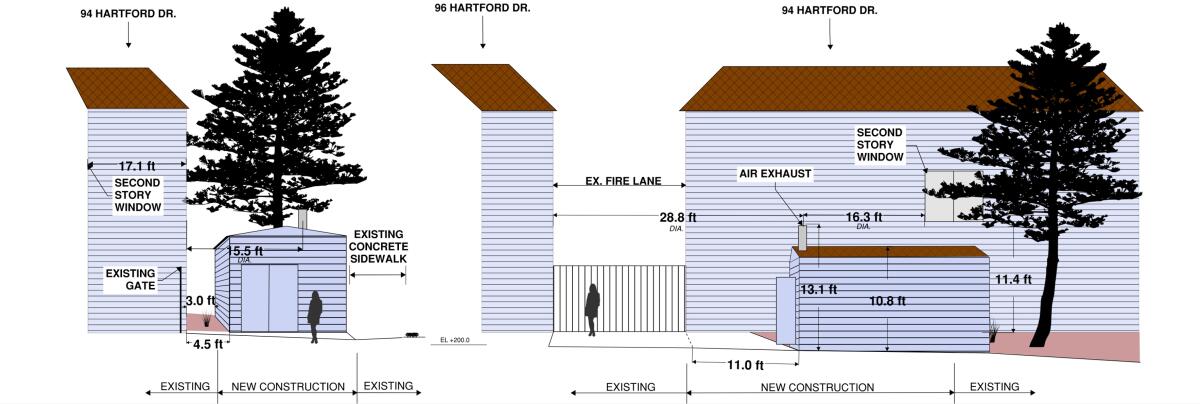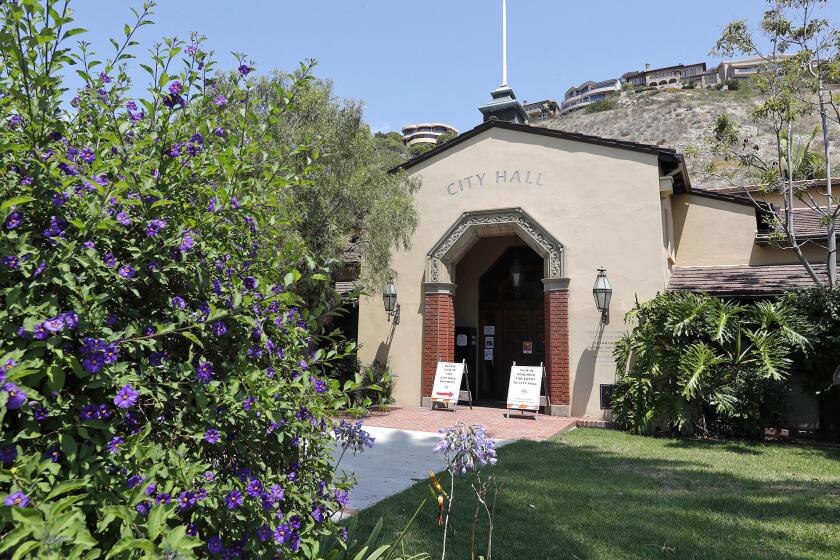Newport Beach upholds permit for treatment system for former Ford Aeronutronic facility

- Share via
The Newport Beach City Council voted late last month to uphold the decisions made by its Planning Commission and city Zoning Administrator Ben Zdeba to approve a limited-term permit for a soil-remediation system at the site of a former Ford Aeronutronic facility that was demolished in the 1990s.
City staff said remediation at the site was necessary because “volatile organic compounds” had been used to clean the metal parts of operating equipment, as was customary at the time of the plant’s operation. The Santa Ana Regional Water Quality Control Board oversaw remediation to readdress the environmental impacts before the area was redeveloped for residential purposes.
But in 2016, advances in equipment allowed environmental screening levels to be updated, and indoor sampling within the Bayridge Park community indicated a need for a soil vapor extraction and remediation to mitigate vapor intrusion, according to a city staff report prepared for the July hearing.
The limited term permit would allow for a 3.2-foot separation between the treatment system building and the nearest residential structure, where required separation is 8 feet between buildings, and to allow the system to encroach into a 5-foot front setback.
A number of residents of properties adjacent to the site, which abuts 94 Hartford Drive, objected to the treatment system out of concern for its aesthetic and noise impacts. They also stressed fears of negative health impacts and objected to the 10-foot-tall prefabricated steel building that would house the system.
“It’s really a health issue,” said Lee Healy, one of the nearby residents who appealed to the City Council to overturn the approvals.
Healy referenced an article published by the Los Angeles Times in March that said a chemical called trichloroethylene, or TCE, was used heavily to degrease aviation components and heavy machinery for decades and is known to cause cancer. It is now hypothesized that the chemical also may be contributing to Parkinson’s disease.
Comments from other residents referenced the potential for pipe breaks and where the remediation efforts would be ventilated.
Some stressed they weren’t looking to stop the remediation but wanted to see the shed moved to a different location.
Healy’s husband, Larry Cano, said during public comments, “We’re ... being asked to trust that basically the same folks that caused the problem are cleaning it up properly.
“[I’ve] heard a lot of opinion here, haven’t heard from any scientists that are health, safety experts that can give us the real analysis on is it safe to be living and breathing next to this needed [soil vapor extraction] site? I think it would be prudent to move it away from people just to err on the side of caution because if you’re wrong, then we ... and others of us in this area will continue to be breathing these toxic chemicals.”
Mayor Pro Tem Will O’Neill said it was a bad situation all around, but in reviewing the documents, he couldn’t find any findings he disagreed with that support approval of the limited-term permit.
O’Neill said he understood and felt apologetic regarding residents’ frustration, but on legal grounds, moving ahead with soil remediation as planned was the right thing to do.
Councilwoman Lauren Kleiman agreed with O’Neill and added that if her family’s home was affected she would have had the same concerns as the appellants. She said after years of mitigation efforts she believed Ford’s consultants had done the necessary groundwork and outreach for the project.
“At this point, I am sufficiently satisfied that there was no viable alternative location for this facility when this process began and that the exterior emissions risk to adjacent residents is essentially negligible, but at a minimum, less than the conditions that exist inside these homes today,” Kleiman said. “Bottom line for me is these remediation efforts cannot afford to be delayed any longer.”
While upholding the decisions of the planning commission and zoning administrator, the council also decided to refund or waive the costs of residents’ appeal. O’Neill remarked such a move was a “one-off” situation.
A Ford spokesperson declined to comment on the matter Wednesday.
All the latest on Orange County from Orange County.
Get our free TimesOC newsletter.
You may occasionally receive promotional content from the Daily Pilot.









